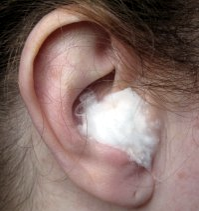What is Otitis Externa (Outer Ear Infection)?
This condition refers to an infection of the skin/ lining of the ear canal. It is usually caused by a bacteria or fungus. It is a common condition that can affect any age group.
Symptoms
If you have an outer ear infection, you may experience some of the following symptoms:
- Pain or ache in the ear
- Ear discharge, which may be yellow, smelly or even blood-stained
- Persistent itch in the ear canal
- Blocked-ear sensation
- Decreased hearing
How are Outer Ear Infections Treated?
1. Primary Care Treatment
When outer ear infections first occur, most people would consult their primary care doctor (e.g. GP or Polyclinic doctor) and be given antibiotic ear drops or oral antibiotics. This is effective in treating the infection in most cases.
If the infection still persists despite antibiotics or in severe cases of infection, you will be referred to an ENT Specialist for further treatment.
2. Specialist Treatment in ENT Clinic
The ENT Specialist would typically perform an ear toilet procedure with the aid of a microscope. This procedure aims to remove as much pus and infected material from the ear canal as possible.
In some cases, the ear canal may be very swollen due to the infection. To reduce the swelling, a special sponge which is coated with a combination of antibiotic, anti-fungal and steroid cream is inserted into the ear canal.
After a few days or at the next consultation, your ENT doctor will remove the sponge. You will also be prescribed antibiotic or anti-fungal ear drops to use for a period of time.
How to Care for Your Infected Ear
1. Avoid Picking / Digging Ears
Avoid using metal ear diggers or cotton buds to pick/ dig your ears. This may worsen ear infections by breaking the skin of the ear canal and pushing infected material deeper into the ear canal.
2. Prevent Water from Entering Ears
Before showering, place a cotton wool ball at the entrance of the ear canal, in the bowl of the ear, to prevent water from entering the ear canal.

3. Avoid Swimming
Do not go swimming until the infection clears.
4. Medications
Use the antibiotic or anti-fungal ear drops prescribed to you by your ENT doctor. It is normal to experience a stinging sensation with the first few drops.
